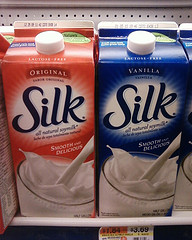People Remember Details
I spoke about monetization at indieconf this past weekend. This marked the third year for the event and, having spoken at all three, I can say that it is a great conference that provides a lot of bang for your buck. Michael Kimsal, the organizer of indieconf, cares and it shows.
Following the event, I had dinner with Michael, as well as Jonathan Bailey and Kevin Dees, friends of mine who had also spoken at the event. We discussed indieconf, of course, and the discussion turned to conference food.
I don’t recall all details of the conversation, but I believe Michael said that a bunch of people complemented him on the food at the event. Specifically, the quality of the food and the options available. There were sandwiches, salads and desserts. There were options for people who eat red meat, who don’t (me) and who wanted a meatless sandwich. There was also a dedicated table for vegans and vegetarians with some good looking options.
Michael said that some had expressed surprise that there were actually vegan and vegetarian options. He deferred the praise to the caterers, but clearly offering more options is a conscious choice, one that is reflected in the form sent to attendees before the conference, asking for dietary requirements. Keep in mind that indieconf is a $79/$99/$129 conference (depending on when you registered). It is a full day of programming, inclusive of parking, breakfast, lunch, snacks, drinks (soft drinks, tea, coffee) and evening hors d’oeuvres. At those prices, it is impressive that he’s able to put out such a quality spread for lunch.
I’ll contrast this to a big event that I spoke at, that was at a big conference center. Four figure attendance, three day event, tickets ranging over $1,000 at the highest end. I go to sit down for lunch and I have two options: sirloin steak and an unfortunate looking plate of fruit. That’s it. Red meat or fruit. I took the red meat one and ate the potatoes and vegetables. The lunch at indieconf blew the lunch at that other event away.
Michael also told me that someone had asked that soy milk be available, providing very short notice (I think he said it may have been the night before, though I’m not sure). So, the morning of the event, amongst all the other things he had to do, he picked up some soy milk and brought it to the conference. He said that the attendee couldn’t believe that he’d done that. Staff at the venue were angry, saying it had to be presented in a certain way and could only be out for a short period (possibly health code and safety standard related concerns, which I understand). But, the attendee will have a fond memory of Michael going out of his way for him or her. Regardless of what else happens, that memory will stand out.
Here’s the point to all of this: you may not think this matters or it should matter. That soy milk was available or that quality, diverse lunch options are available. You may not feel like it is the conference’s responsibility to cater to people in this way, especially at that price point. After all, programing is the most important thing, right? Quality presentations from good speakers. And, really, you are right. That is what is most important and it is not the responsibility of the conference to cater to every attendee’s dietary concerns. They can bring food with them.
But, people remember details. Details are your opportunity to set yourself apart from others. When Michael bought that soy milk, what he was really doing was making a fan and/or meeting a supporter. Someone who will be more likely to support him on something else (like next year’s event) and more forgiving if something doesn’t go exactly as planned at the event. Conferences are conferences are conferences. Many of them blend together. But, when the organizer of the conference buys soy milk for you on the day of his event, that is something you remember.
Similarly, when you are interacting with members of your community, you also have that opportunity. The opportunity isn’t automated. That “welcome” private message you automatically send to all new members isn’t a detail they remember. That automatic “Happy Birthday” message you send to your members via email isn’t a detail they remember.
But, when a member is involved in an accident or needs to have surgery or something along those lines, a get well message or, better yet, greeting card is something they remember. When you see someone struggling with a community related feature and you contact them to help without being asked, that is something they remember. When you call people out individually for doing something great, that is something they remember.
Details like these present themselves all the time. Those who care enough to devote time to them are leaders that people get behind and are the type of individuals that represent an organization well and make good community managers.

